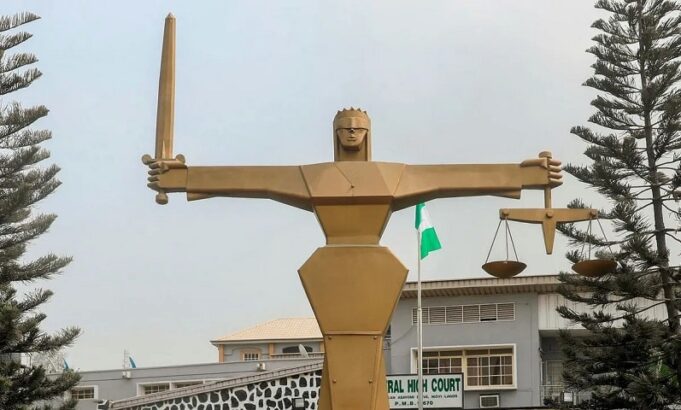The Enugu State High Court on Wednesday, delivered a landmark judgment on the long-standing dispute over the Igweship of Mburubu, a community in Nkanu East Local Government Area of Enugu State.
The court ruled in favor of the Mburubu Town Union, declaring that Mr. Jerry Onuokaibe was not legitimately elected as the Igwe of Mburubu.
Instead, he had imposed himself on the community through the influence of a group known as the Mburubu General Assembly, which the court described as illegitimate.
Presiding over the case, Justice C.O. Ajah scrutinized the role of the Mburubu General Assembly in the selection and election process of the community’s traditional ruler.
“The Mburubu General Assembly is an unauthorized entity without any legal standing,” the judge ruled, describing the group as a “faceless organization and interloper.”
The court found that the group’s actions were not only unlawful but also without any legal backing.
Furthermore, Justice Ajah highlighted that the Mburubu General Assembly was not registered with the Corporate Affairs Commission (CAC), making its decisions legally void.
The ruling also addressed the 1976 document that Mr. Onuokaibe had cited to justify his claim to the throne.
The judge dismissed the document, clarifying that:
“The 1976 constitution, which was presented as a foundation for his claim, was merely a guideline for traditional rulers in the old Eastern region. It was never a legally binding statute or gazette law for Mburubu.”
The court affirmed that the only recognized and enforceable legal document governing Mburubu’s traditional leadership is the 2003 Constitution of the Mburubu Town Union, which is legally acknowledged by both the Enugu State Government and the law.
Additionally, Justice Ajah clarified the rightful succession process for the Igweship of Mburubu, stating:
“The Igweship stool of Mburubu is open only to individuals from Uhuegbe village, which holds the second position in the order of seniority within the community.”
This ruling reaffirmed that Uhuegbe village holds the exclusive right to produce the next Igwe, while Mr. Onuokaibe, who hails from Umunafor village—the fifth in the order of seniority—is ineligible to contest the throne.
“Since his village does not hold the necessary position in the seniority order, his claim to the Igweship is unconstitutional and goes against the established traditions and legal framework of Mburubu,” the judge declared.
During the proceedings, the court differentiated between the outdated 1976 document and the 2003 Mburubu Town Union Constitution.
While the 1976 document outlined a rotational system for traditional rulers, the 2003 constitution revised and formalized the selection process based on village seniority.
The judgment also clarified the legal requirements for the election and removal of traditional rulers in Enugu State, stating that only processes that are officially gazetted by the government are legally valid.
“Traditional leadership elections before 1976 are invalid because the administrative structure of Enugu State and the establishment of Nkanu Local Government Area were not yet in place at the time,” Justice Ajah noted.
As part of the ruling, the court imposed a fine of N500,000 on both Mr. Onuokaibe and the Mburubu General Assembly, payable to the Mburubu Town Union and Chief Linus Igbudu.
The penalty was issued as a consequence of their role in disrupting peace within the community and wasting judicial resources.
The court further directed the Mburubu Town Union to organize a new Igweship election within 21 days.
The Enugu State Ministry of Rural Development and Chieftaincy Affairs was tasked with overseeing the process to ensure compliance with the 2003 Constitution of the Mburubu Town Union.

















